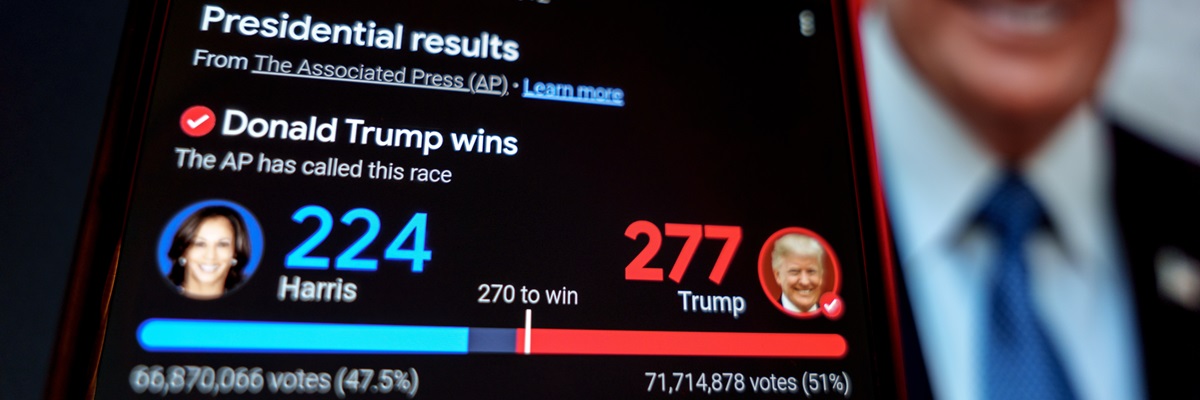Diplomacy
What Trump’s victory means for Ukraine, the Middle East, China and the rest of the world

Image Source : Shutterstock
Subscribe to our weekly newsletters for free
If you want to subscribe to World & New World Newsletter, please enter
your e-mail
Diplomacy

Image Source : Shutterstock
First Published in: Nov.07,2024
Nov.11, 2024
Donald Trump’s return to the White House in January 2025, combined with a Republican-led US Senate, was widely feared among international allies and will be cheered by some of America’s foes. While the former put on a brave face, the latter are finding it hard to hide their glee.
On the war in Ukraine, Trump is likely to try to force Kyiv and Moscow into at least a ceasefire along the current front lines. This could possibly involve a permanent settlement that would acknowledge Russia’s territorial gains, including the annexation of Crimea in 2014 and the territories occupied since the full-scale invasion of Ukraine in February 2022.
It is also likely that Trump would accept demands by the Russian president, Vladimir Putin, to prevent a future Ukrainian Nato membership. Given Trump’s well-known animosity to Nato, this would also be an important pressure on Kyiv’s European allies. Trump could, once again, threaten to abandon the alliance in order to get Europeans to sign up to a deal with Putin over Ukraine.
When it comes to the Middle East, Trump has been a staunch supporter of Israel and Saudi Arabia in the past. He is likely to double down on this, including by taking an even tougher line on Iran. This aligns well with Israeli prime minister Benjamin Netanyahu’s current priorities.
Netanyahu seems determined to destroy Iran’s proxies Hamas, Hezbollah and the Houthis in Yemen and severely degrade Iranian capabilities. By dismissing his defence minister, Yoav Gallant, a critic of his conduct of the offensive in Gaza, Netanyahu has laid the ground for a continuation of the conflict there.
It also prepares for a widening of the offensive in Lebanon and a potentially devastating strike against Iran in response to any further Iranian attack on Israel.
Trump’s election will embolden Netanyahu to act. And this in turn would also strengthen Trump’s position towards Putin, who has come to depend on Iranian support for his war in Ukraine. Trump could offer to restrain Netanyahu in the future as a bargaining chip with Putin in his gamble to secure a deal on Ukraine.
Pivot to China
While Ukraine and the Middle East are two areas in which change looms, relations with China will most likely be characterised more by continuity than by change. With Chinese relations being perhaps the key strategic foreign policy challenge for the US, the Biden administration continued many of the policies Trump adopted in his first term – and Trump is likely to double down on them in a second term.
A Trump White House is likely to increase import tariffs, and he has talked a great deal about using them to target China. But Trump is also just as likely to be open to pragmatic, transactional deals with Chinese president Xi Jinping.
Just like in relations with his European allies in Nato, a serious question mark hangs over Trump’s commitment to the defence of Taiwan and other treaty allies in Asia, including the Philippines, South Korea, and potentially Japan. Trump is at best lukewarm on US security guarantees.
But as his on-and-off relationship with North Korea in his first term demonstrated, Trump is, at times, willing to push the envelope dangerously close to war. This happened in 2017 in response to a North Korean test of intercontinental ballistic missiles.
The unpredictability of the regime in Pyongyang makes another close brush of this kind as likely as Trump’s unpredictability makes it conceivable that he would accept a nuclear-armed North Korea as part of a broader deal with Russia, which has developed increasingly close relations with Kim Jong-un’s regime.
Doing so would give Trump additional leverage over China, which has been worried over growing ties between Russia and North Korea.
Preparing for a Trump White House
Friends and foes alike are going to use the remaining months before Trump returns to the White House to try to improve their positions and get things done that would be more difficult to do once he is in office.
An expectation of a Trump push for an end to the wars in Ukraine and the Middle East is likely to lead to an intensification of the fighting there to create what the different parties think might be a more acceptable status quo for them. This does not bode well for the humanitarian crises already brewing in both regions.
Increasing tensions in and around the Korean peninsula are also conceivable. Pyongyang is likely to want to boost its credentials with yet more missile – and potentially nuclear – tests.
A ratcheting-up of the fighting in Europe and the Middle East and of tensions in Asia is also likely to strain relations between the US and its allies in all three regions. In Europe, the fear is that Trump may make deals with Russia over the head of its EU and Nato allies and threaten them with abandonment.
This would undermine the longevity of any Ukrainian (or broader European) deal with Moscow. The relatively dismal state of European defence capabilities and the diminishing credibility of the US nuclear umbrella would not but help to encourage Putin to push his imperial ambitions further once he has secured a deal with Trump.
In the Middle East, Netanyahu would be completely unrestrained. And yet while some Arab regimes might cheer Israel striking Iran and Iranian proxies, they will worry about backlash over the plight of Palestinians. Without resolving this perennial issue, stability in the region, let alone peace, will be all but impossible.
In Asia, the challenges are different. Here the problem is less US withdrawal and more an unpredictable and potentially unmanageable escalation. Under Trump, it is much more likely that the US and China will find it hard to escape the so-called Thucydides trap – the inevitability of war between a dominant but declining power and its rising challenger.
This then raises the question of whether US alliances in the region are safe in the long term or whether some of its partners, like Indonesia or India, will consider realigning themselves with China.
At best, all of this spells greater uncertainty and instability – not only after Trump’s inauguration but also in the months until then.
At worst, it will prove the undoing of Trump’s self-proclaimed infallibility. But by the time he and his team come to realise that geopolitics is a more complicated affair than real estate, they may have ushered in the very chaos that they have accused Biden and Harris of.
First published in :

The author and editor of twenty-four books and almost one-hundred journal articles and book chapters, Stefan Wolff is Professor of International Security at the University of Birmingham, England, UK. A political scientist by background, he specialises in the management of contemporary security challenges, especially in the prevention and settlement of ethnic conflicts and civil wars, and in post-conflict reconstruction, peace-building and state-building in deeply divided and war-torn societies. His expertise also includes geopolitics and in particular great-power rivalries in Eurasia. He has extensive expertise in Northern Ireland, the Balkans, Central and Eastern Europe, and the former Soviet Union, and has also worked on a wide range of other conflicts elsewhere, including the Middle East, Africa, and Central, South, and Southeast Asia.
Unlock articles by signing up or logging in.
Become a member for unrestricted reading!